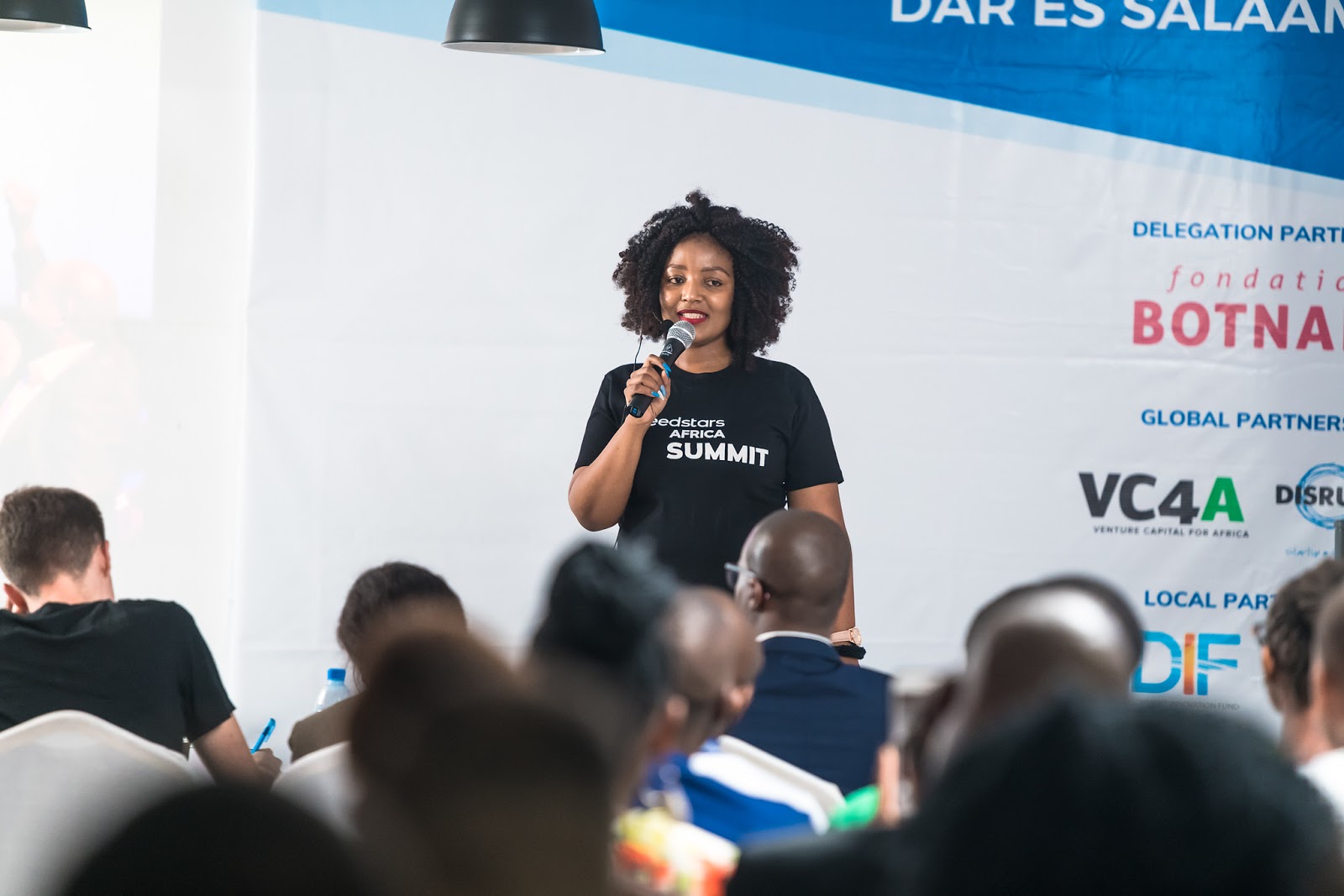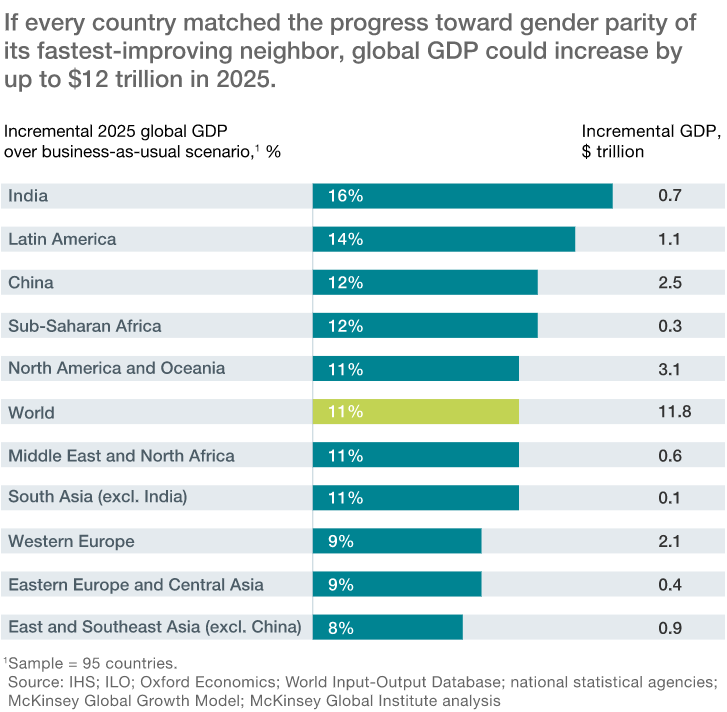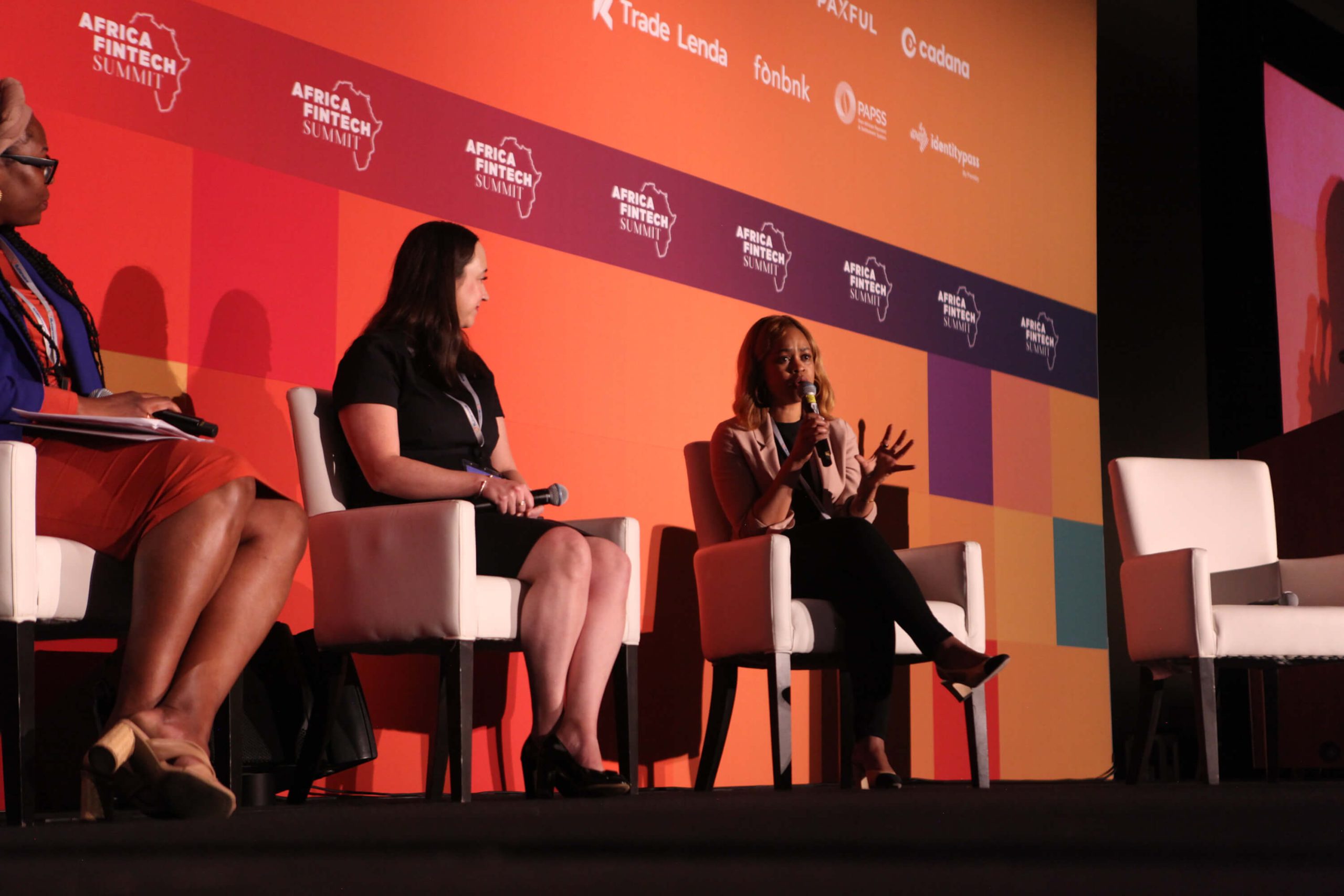-
About the Gender Equity Track
Every year since 2013, Seedstars runs its renowned Seedstars World Competition, gathering the most promising startups from over 90 emerging markets for the ultimate prize of up to USD 500,000 in equity investment. The objective of the Gender Equity Track is to drive gender-inclusive training opportunities and catalyse more investment for female founders in Sub-Saharan Africa. The Gender Equity Track consists of the following key components: 1) Gender Lens Training 2) Gender Lens Investment and 3) Gender-Balanced Representation.
The Gender Equity Track was piloted after a 2018 analysis showed that from the 5’000 applications the Seedstars World competition received the previous year in 2017, only 14% were female-led businesses, and only 3% of women applicants made it to the top 10 in each country. However, the 3% of women entrepreneurs in the Seedstars World initiative represented some of the strongest candidates and best performing investment portfolio companies.
“This triggered the need to better understand how to support women founders,” states Alisée de Tonnac, Co-Founder at Seedstars. “As a female entrepreneur myself, I am aware of the challenges faced by women when entering predominantly male business environments, especially when it comes to raising funds. We at Seedstars invite all the entrepreneurship ecosystem players to change the narrative and start taking action in gender equality initiatives, such as The Gender Equity Track”.
One of the leading examples is MEDSAF, the world’s largest Pan-African pharma-tech company directing and influencing the flow of medications through complicated supply chains, which raised $ 1.5 million in investment and is part of the Seedstars International portfolio.
“It’s time to change the narrative and you have the power to do so.”
- Aims of the Gender Equity Track
It all started in 2019 when Seedstars, in partnership r with the German Development Agency (GIZ), launched a pilot of the Gender Equality Track with the purpose of enabling female entrepreneurs from Sub-Saharan African countries to participate in training and to open investment opportunities.. One of the key findings of the pilot was that female-led startups are more comfortable pitching in front of female investors.
This year, Seedstars rebranded the project to The Gender Equity Track and is scaling this program to 25+ countries in the region with the goal of increasing investment in female-led startups. In 2021, the objective is to be able to run this initiative in 90+ emerging markets across the globe. By 2025, Seedstars aims to achieve a gender-equal investment portfolio.
Our goal is to source 500 female-led startups from Sub-Saharan Africa to join the yearly Seedstars World Competition.
By participating in the Seedstars World Competition, startups get customised training and mentorship from our global community of entrepreneurship experts and industry leaders, as well as get the chance to receive up to USD 500,000 of equity investment from Seedstars International or one of the investors in its network.
Interested startups can apply at the website: genderequity.seedstars.com.
- Gender Equity vs Gender Equality
Seedstars decided to rebrand the project from “Gender Equality” to “Gender Equity Track”.Why? Gender equity refers to the process of being fair to women and men. To ensure fairness, strategies and measures must often be available to compensate for women’s historical and social disadvantages that prevent women and men from otherwise operating on a level playing field. Equity leads to equality (UNFPA, 2005).
If gender equality is the end, gender equity is the means.
Gender equality requires equal enjoyment by women and men of socially-valued goods, opportunities, resources and rewards. Where gender inequality exists, it is generally women who are excluded or disadvantaged in relation to decision-making and access to economic and social resources. Therefore a critical aspect of promoting gender equality is the empowerment of women, with a focus on identifying and addressing power imbalances and giving women more autonomy to manage their own lives. (UNFPA, 2005).
Realising that gender equality is a long-term commitment that requires continuous efforts through initiatives, such as women entrepreneurship empowerment, Seedstars agreed that gender equity was the most appropriate naming for the project.

- Seedstars and gender equality
The Gender Equity Project is one of the most prominent examples of the work done by Seedstars to act on its strong advocacy for gender equality. However, Seedstars also promotes gender equality in other ways:
Seedstars prides itself for being a gender-balanced workplace where women and men have the same opportunities to grow and strive. This line of thought applies to its internal hiring and promotion of talent, and extends to the participation of entrepreneurs in its programs and competitions, as well as juries, investors and mentors working with the businesses.
Seedstars believes that women belong in all places where decisions are made (cit. Ruth Bader Ginsburg), and that their empowerment, beyond being a moral imperative, is crucial to the sustainable development of emerging economies. Seedstars is committed to empowering women both internally as a company, and in the work it does providing access to entrepreneurial education, funding and network.
- Gender Equality as Means for Economic Development
Women entrepreneurs face multiple challenges accessing funding with a $42 billion financing gap (African Development Bank). More so, in Africa, in Q1 2020, startups led by women were able to raise only 3.2% of the total funding raised by African ventures. In Q1 2019, they raised 5.7% (Briter Bridges).
According to the UN, Women have been found to re-invest up to 90% of their earnings at a personal level back into their families and communities compared to 35% for men.
While equality between men and women is in itself an important development goal, women’s economic participation is also a part of the growth and stability equation. In rapidly aging economies, higher female labor force participation can boost growth by mitigating the impact of a shrinking workforce. Better opportunities for women can also contribute to broader economic development in developing economies, for instance through higher levels of school enrollment for girls (International Monetary Fund).
Image source: https://www.imf.org/external/themes/gender/.
A McKinsey Global Institute report finds that $12 trillion could be added to global GDP by 2025 by advancing women’s equality. Therefore, gender equality is a concern affecting us all on a societal level as it is intrinsically linked to social, cultural and economic factors.
- Men’s role in gender equality
Gender equality is not solely a women’s battle; it is an issue concerning men too. Today’s entrepreneurial ecosystems in emerging markets are mainly men-dominated, which makes it crucial for everyone to take an active stance in regards to empowering more female-led businesses and providing equal and fair opportunities and access for women entrepreneurs.
It is important not to overlook men’s role in gender equality as their gender identity tends to be considered the default. Societal norms and conceptions of masculinity and expectations of men as leaders, husbands or sons create demands on men and shape their behaviour (UNFPA).
Whereas men’s roles in society are often associated with being the providers of the material needs of their family, women’s role expectations are related to the nurturer and carer, all reinforced through peer pressure and media stereotypes. We want to build a reality in which both the genders have the right to assume a different role than is expected of them and have the opportunity to achieve their ambitions.
- How to get engaged
Whether you’re an organisation or an individual, there are specific actions that you can take in order to make a difference and change the narrative. Seedstars invites all its community and partners to recommend female-led startups to participate in the Gender Equality Track and to spread the message in their networks. Seedstars is also looking for stories that tell the experience of women entrepreneurs to be shared under the scope of the project. Stories of African women entrepreneurs can be submitted with a contact request from this webpage: https://seedsta.rs/3jfSU79.
References:
- https://www.unfpa.org/resources/frequently-asked-questions-about-gender-equality
- https://www.imf.org/external/themes/gender/
- https://www.mckinsey.com/featured-insights/employment-and-growth/how-advancing-womens-equality-can-add-12-trillion-to-global-growth
- https://www.forbes.com/sites/ellevate/2017/09/14/why-we-need-gender-equity-now/#427c358677a2




